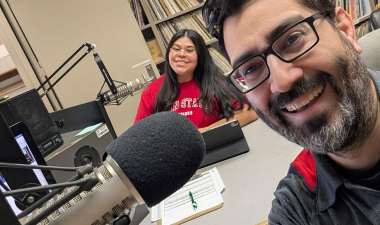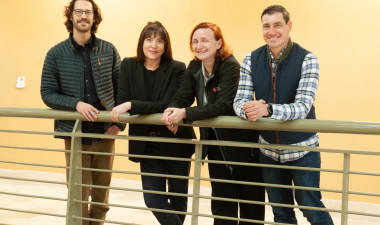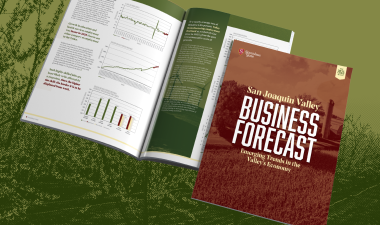As Mary Roaf explored South Africa’s Hector Pieterson Museum, named for the first of at least 200 school children killed in the 1976 Soweto Uprising, she needed to be alone.
She walked outside with tears streaming down her face. While the Fulbright-Hays Scholar, Stanislaus State associate professor and chair of the Department of Ethnic Studies experienced several powerful moments during her month-long trip last summer, the museum touched a nerve.
“I felt overwhelmed,” Roaf said.
Prior to working in higher education, Roaf taught in K-12 schools and knew children like 12-year-old Hector, who became a symbol of the uprising because of a photo seen worldwide of his lifeless body being carried away by a friend, with Hector’s sister running alongside.
As a scholar, Roaf studied apartheid in South Africa, but the true horror of the system was defined by being where the state police gunned down children as young as 5 years old as they protested the edict that school be taught to Black children in the white oppressor’s Afrikaans language instead of their indigenous Bantu.
“It was heart-piercing,” Roaf said.
Her group visited a church where some 2,000 children sought refuge. Bullet holes created by police firing on the sanctuary remain. They also visited the national archives in nearby Johannesburg, where some of the signs the children carried are housed, their blood stains still visible.
Visiting Robben Island, where Nelson Mandela, the activist and future president of post-apartheid South Africa, was held as a prisoner for 18 of his 27 years, was emotionally draining.
The experiences led to Roaf calling her month-long study in South Africa “life changing.”
“The first realization I had is that as much research as I had done on the apartheid movement and on the Soweto massacre, I was barely scratching the surface,” Roaf said.
Her older sister was active at Harvard, joining students across the country in the early 1980s when they pushed for divesting from South Africa until apartheid was abolished. The system allowed 15 percent of white British and Dutch descendants to rule 85 percent indigenous and colored residents.
Roaf was attending middle school in Arkansas at the time, but her awakening came in 1987 while visiting her grandmother in Washington, D.C., as a high school senior. They saw the movie “Cry Freedom,” about Steven Biko, the South African anti-apartheid activist who started the South African Students Organization and Black Consciousness Movement before dying at the hands of prison guards in 1977.
“I asked myself, ‘Why have I never heard of apartheid? Why have I never heard of this liberation movement and this activist I fell in love with?” Roaf said. “I realized it was because I was in Arkansas.
She moved on from her home state, studied apartheid and some of the leaders of the Third World Consciousness Movement who worked to decolonize the continent of Africa. Additionally, she integrated information about apartheid into her courses, especially in higher education.
“What’s changed for me as a scholar, as an educator and as a person, is the way I integrate the content because of the experiences I had this summer.”
Learning isiZulu and spending time in KwaZulu-Natal, lands of South Africa’s indigenous population, reaffirmed Roaf’s approach to teaching and to life.
She lives by Ubuntu, a Zulu word describing a philosophy that embraces the individual and the collective of individuals.
“I am an interdisciplinary ethnic studies scholar, and my academic training is as a social/cultural anthropologist,” Roaf said. “We tend to categorize societies either as collectivist or individualistic. What I love about Ubuntu is it’s this wonderful fusion of both.”
She is introducing the concept to students in all her classes, whether Black/African American Experiences or Introduction to Ethnic Studies.
Her class outlines define Ubuntu for them:
It is a belief, a philosophy and a sacred practice based on these principles:
- We are defined by our compassion and kindness toward others.
- We hold ourselves and one another accountable in humanistic ways.
- We are connected not only to our communities, but also to our ancestors, who are always present with and through us.
“An activity I have done for many years, is to have my students, in small groups, discuss and create rules of engagement, but there’s something different, because I’m framing it specifically around Ubuntu,” Roaf said. “The way that we connect with each other in my classes reflects this change.”
She even saw evidence of it in student essays. One student, connecting the activist Octavius V. Catto with Ubuntu, wrote:
“When I think of Catto I think of Ubuntu because he wanted his fellow brothers to succeed and have equal rights. He felt that it was his duty to preserve these freedoms for his people, make sure they were educated, and loved. Catto would not be who he was without his people.”
Another student, in an essay on journalist and activist Ida B. Wells wrote:
“This reminds me of how in class we discussed the concept of ubuntu which is based on seeing the value equally in all individuals and how we are defined by the compassion expressed towards others. Ida shows this practice by doing her part through activism and writing to show people that we all deserve equality in treatment, and how there needed to be a halt to the unjust actions against Black people.”
In addition to changing the tenor of the class, Roaf is adding new material to her courses.
The experience did more than change Mary Roaf the educator, though. It changed the person.
“I now have language and a framework, and I’m looking at this powerful, resilient history that is ancestral,” she said. “It may not be my personal ancestry, but it still resonates with me. So much is aligned with the person I have always been, and it helped me frame it in specific ways and take everything I do to the next level.”



